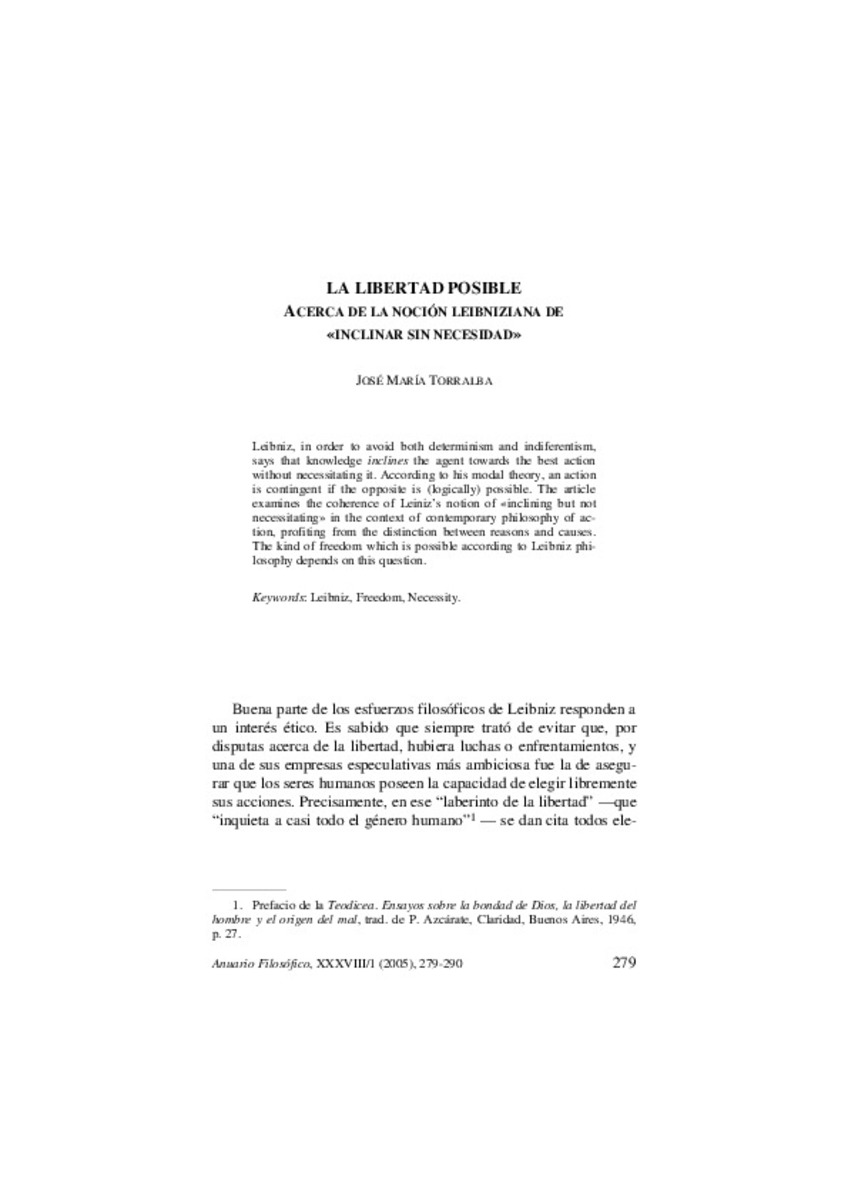Full metadata record
| DC Field | Value | Language |
|---|---|---|
| dc.creator | Torralba, J.M. (José María) | |
| dc.date.accessioned | 2009-11-11T11:07:12Z | - |
| dc.date.available | 2009-11-11T11:07:12Z | - |
| dc.date.issued | 2005 | - |
| dc.identifier.citation | Anuario Filosófico, 2005 (38), 279 - 290 | es_ES |
| dc.identifier.uri | https://hdl.handle.net/10171/4751 | - |
| dc.description.abstract | Leibniz, in order to avoid both determinism and indiferentism, says that knowledge inclines the agent towards the best action without necessitating it. According to his modal theory, an action is contingent if the opposite is (logically) possible. The article examines the coherence of Leiniz’s notion of «inclining but not necessitating» in the context of contemporary philosophy of action, profiting from the distinction between reasons and causes. The kind of freedom which is possible according to Leibniz philosophy depends on this question. | es_ES |
| dc.language.iso | spa | es_ES |
| dc.rights | info:eu-repo/semantics/openAccess | es_ES |
| dc.rights | info:eu-repo/semantics/openAccess | es_ES |
| dc.subject | Leibniz, Gottfried | es_ES |
| dc.subject | libertad | es_ES |
| dc.subject | necesidad | es_ES |
| dc.title | La libertad posible. Acerca de la noción leibniziana de "inclinar sin necesidad" | es_ES |
| dc.type | info:eu-repo/semantics/article | es_ES |
| dc.identifier.doi | 10.15581/009.38.29354 | es_ES |
Files in This Item:
Statistics and impact
Items in Dadun are protected by copyright, with all rights reserved, unless otherwise indicated.






